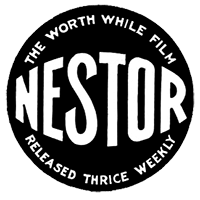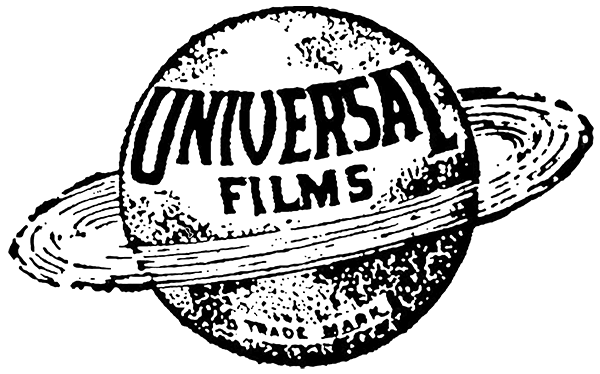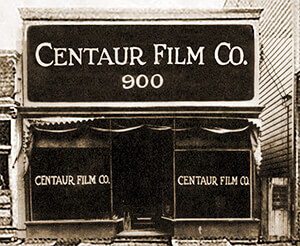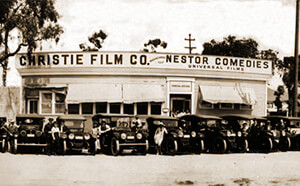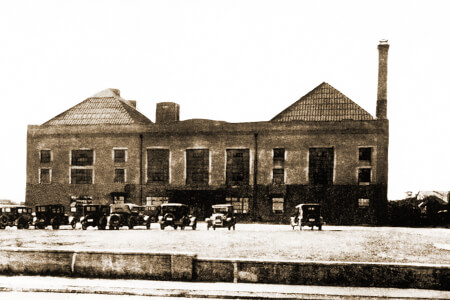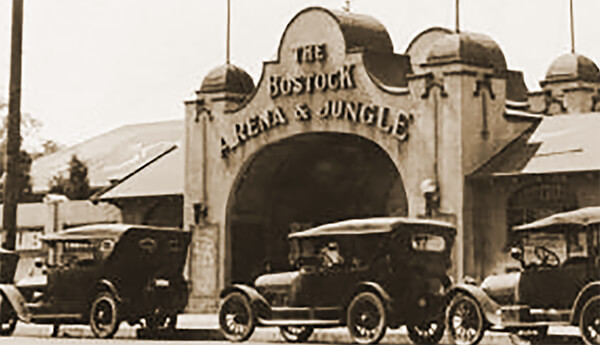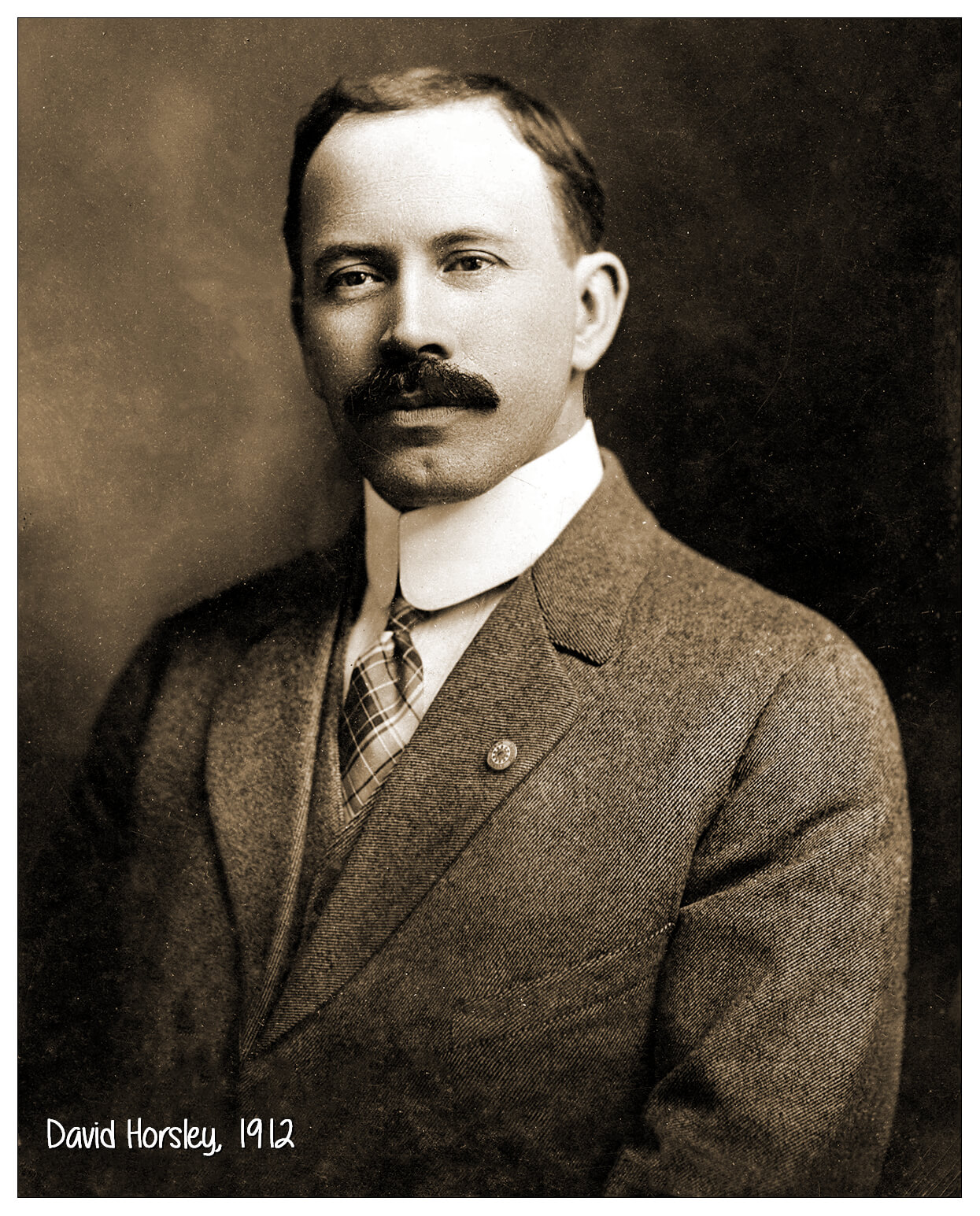The Man Who Invented Hollywood
David Horsley
(click to enlarge)
(Photo courtesy of Marc Wanamaker/Bison Archives)
Related Pages:
- Fort Lee page and New Jersey page
- Moguls Page
- Centaur Film Co.
- Nestor Film Co.
- Universal Pictures
- Bostock Jungle Films
Though his name is nearly forgotten to time, his significance to movie history cannot be over stated. At the time he certainly did not realize his importance, but when we look back at history, he spoke loudly.
Pioneer
David Horsley holds a unique position in American Film History. He was the first truly independent movie maker, opened New Jersey's second studio, and effectively invented Hollywood by opening its very first studio. Had it not been for David Horsley, it is likely there would have been no Hollywood, USA.
Early life
Horsley was born March 11, 1973 in West Stanley, County Durham in England, a coal mining village. Horsley, and his brother William, grew up a children and grandchildren of the management of the company.
As a youngster David lost his left arm after being run over by a coal train. Not long after the family emigrated to America so the Horsley children would not be trapped by the mines and dead end mine jobs. After arrival and a short stay in New York, the family moved to Bayonne, NJ where they did odd jobs to survive.
David attended night school where he studied bookkeeping which allowed him not rely on labor to make a living. The entrepreneurial Horsley opened a bicycle shot finding that his disability did not prevent him from building bikes.
In 1903 Horsley bought a piece of land and built a pool hall but by the recession of 1907 he was out of business.
Studios
One of Horsley's customers, Charles Gorman, was a former employee of one of the original movie companies, the Biograph Company. Together they decided to go into the movie business using Gorman's experience in the business and Horsley knowledge of building geared equipment to build a camera. They started Centaur Film Co. on a canvas covered stage behind the pool hall.
Not wanting to be constrained by Edison's patents, Horsley built his own camera and projector system becoming, effectively, the industry's first independent film maker. Business was tough and the country had just entered a recession. To keep afloat he helped renegade film exhibitors buck the Patents Trust providing them with cameras and film stock so they could make their own movies.
Hollywood
Moving west, Horsley felt, was the only way his business was going to survive. Weather conditions meant limited production in New Jersey, and the Edison Patents Trust detectives were always on the lookout for patent violations. He need a fresh start so he boarded a train with some equipment in 1911 and set out to look for a place to land.He got off the train in Arizona and took a look around, and boarded for Los Angeles.
Hollywood became a "dry" town and Horsley leased a former tavern as his base of operations. This tavern stood on the northeast corner of Sunset and Gower, two dusty roads in the dusty little farming town. He erected a temporary stage behind the tavern and began shooting film (shipping it back to brother William in Bayonne, for processing.
And so began Hollywood.
Soon the tavern was torn down and the Horsley Brothers partnered with the Christie Brothers, who traveled west with the Horsleys, to to build the new Christie-Nestor studio on the spot, a studio that expanded and existed for many decades into the future.
click to enlarge
Universal Pictures Merger
In October of 1912 Carl Leammle, owner/partner in Independent Motion Pictures (IMP), organized a handful of independent producers and formed the Sales Co. as a direct competitor to Edison's Trust for film distribution. The next step for Laemmle was to actually merge with the independents into a production company. He formed Universal Pictures and, along with his partners, became the biggest force in the young industry. David Horsley, a major stockholder, acted as Treasurer.
David and William Horsley were among the original partners, which included other viable independent companies Universal took over Champion Studio in Fort Lee, Nestor and Century in Hollywood, and Bison in Edendale. They built two large studios, one on each coast (see the Universal Pictures page) and absorbed Horsley's large tract of land then known as Nestor Ranch for location shooting (later bought by Jesse Lasky as Lasky Ranch, now Forest Lawn in Hollywood Hills).
Post Universal
Horsley's percentage of ownership was preventing Laemmle from the total control he sought, so in 1913 Leammle made Horsley an offer he couldn't refuse-enough money to set him up for life and pursue things he wanted to do. His good fortune was to be short-lived.
Horsley returned to England for a visit and while there he purchased a zoo that was going out of business and shipped the animals back to Los Angeles where he formed Bostock Jungle Films, a studio and zoo in the fashion of Selig's studio and zoo. He formed David Horsley Productions and MinA (Made in America) Productions. He made over 200 movies at this studio, but unfortunately he was never able to recover his costs from the zoo and his movies never produced a profit. By 1919 he he was bankrupt.
Horsley bounced around the movie industry until the end of his life, but never again saw the success or made the money that his early endeavors brought him.
David Horsley died February 23, 1933, barely remembered as The Man Who Invented Hollywood.

